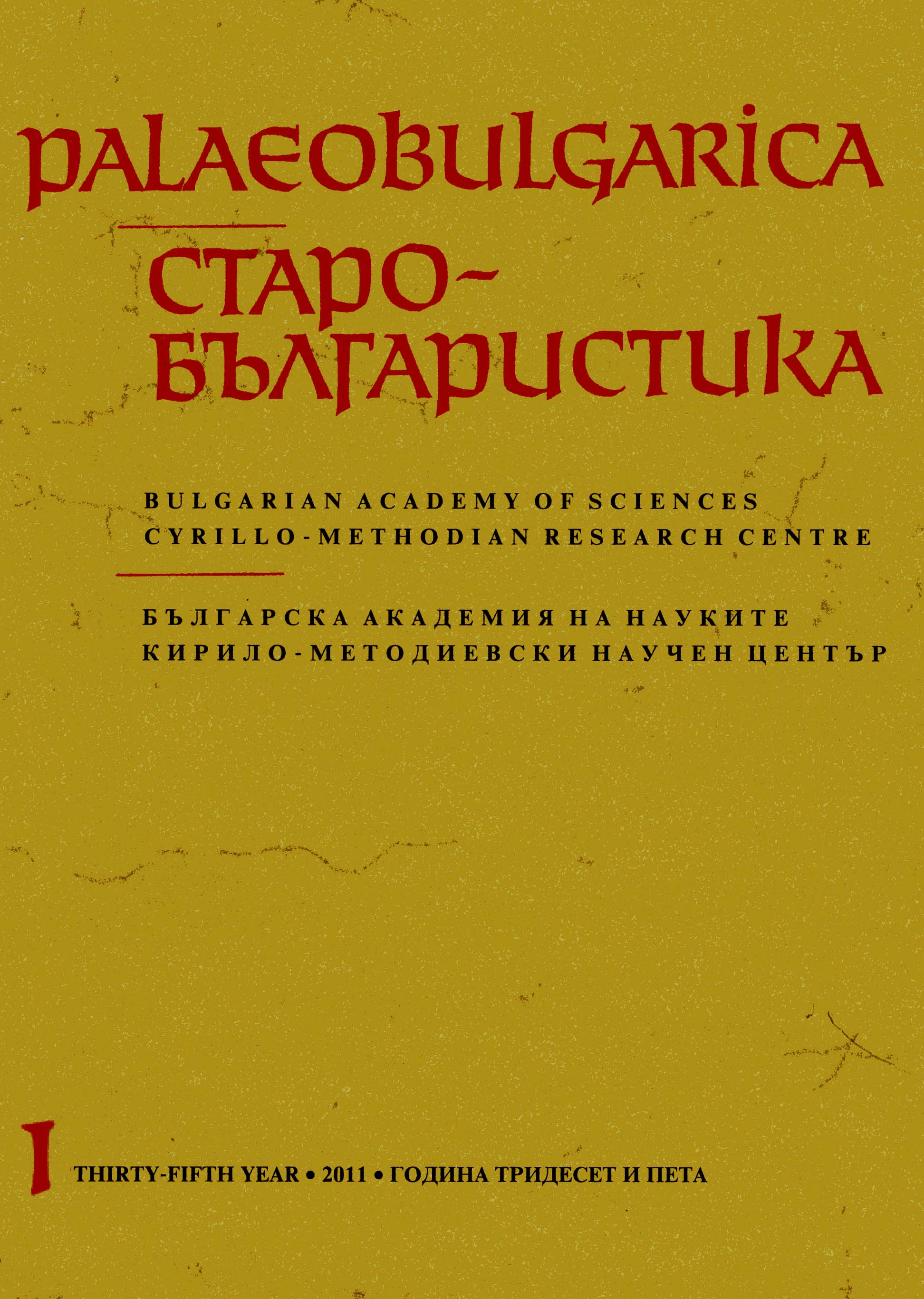За една старинна дума в ръкопис № 289 от Народната библиотека „Св. св. Кирил и Методий“ в София
On an Archaic Word in MS № 289 from the National Library “SS. Cyril and Methodius” in Sofia
Author(s): Anna-Maria TotomanovaSubject(s): Language and Literature Studies
Published by: Кирило-Методиевски научен център при Българска академия на науките
Summary/Abstract: The article proves that the archaic word крлскл, which occurs in two of the horoi accompanying the earlier copy of Tzar Borils Synodikon in MS NBKM 289 was a common equivalent for the Old-Bulgarian writers of the 9th–15th cc. in translating and paraphrasing Ephesians 5:27 and was used freely outside this context in the meaning of ‘wrinkle, fold’. In mediaeval texts of Bulgarian origin the reflexive verb from the same root съвраскати сѧ ‘wrinkle’ as well as the derivative adjective враскавъ ‘wrinkled, shrivelled’ occur. The derivational analysis shows that in the etymological cluster the lexeme крлскл derives from the primary verb *враскати, containing the intensifying Indo-European formant sk usually added to onomatopoeic roots, cf.: дрискам, пискам, пляскам. The dialect verb враскам, врасвам, врасна and its derivatives завраскам, навраскам ее, повраскам, as well as the literary свраскам, сврасна, швраскам are the natural successors to the proto-Slavonic verb in modern Bulgarian. The word-forming paradigm of враска sheds additional light on the history of the productive verb class with the formant sk from which either masculine nouns belonging to the o-stems, such as плясък, трясък, крясък, or female α-stem nouns such as ласка, драска, пръска, плюска could be produced, from which relative adjectives could be formed with the suffix -ax-, cf. *vraskati - *vraska - *vraskavъ or *driskati - *driskъ - *driskavъ. In all probability the roots which could take the intensifying suffix sk could take the formant p as well, cf. хрускам / хрупам, драскам / драпам, etc. Thus the adjective наврапьнъ, which is used by Constantine of Costenets, probably derived from the same root *vor-, that underlies the verb враскати.
Journal: PALAEOBULGARICA / СТАРОБЪЛГАРИСТИКА
- Issue Year: 2011
- Issue No: 1
- Page Range: 17-23
- Page Count: 7
- Language: Bulgarian
- Content File-PDF

